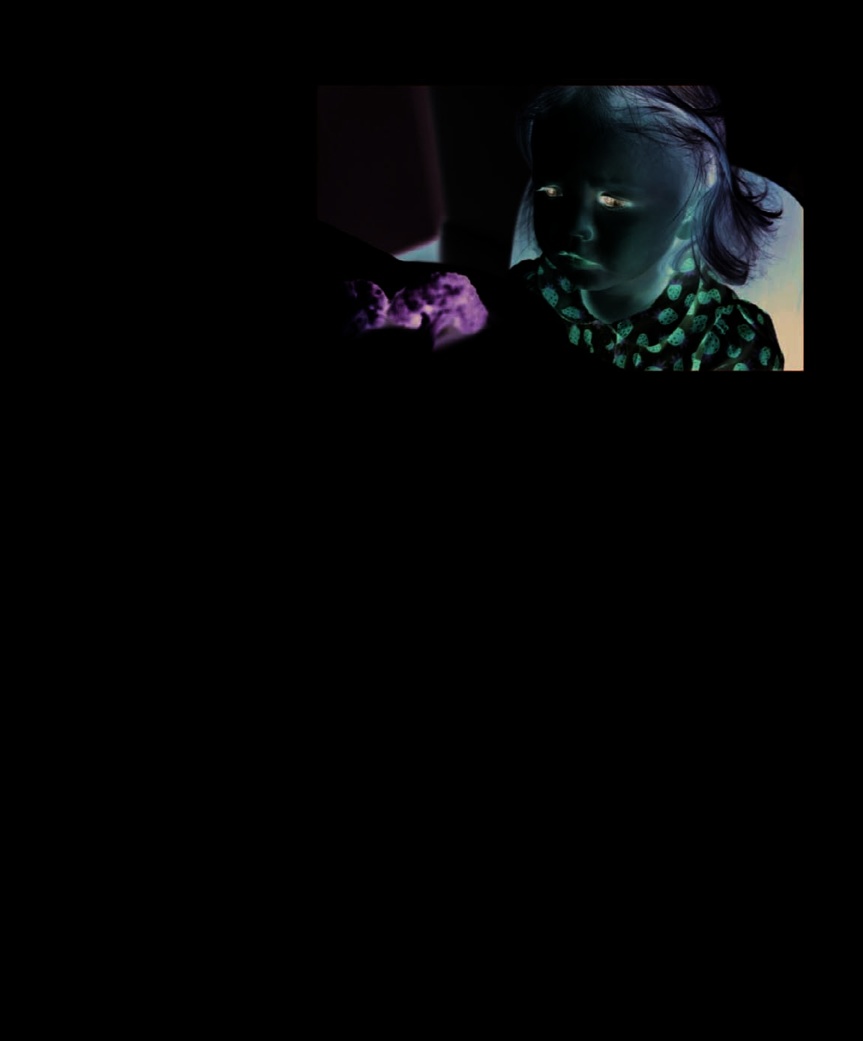The Psychology Book (42 page)
Read The Psychology Book Online
Authors: Unknown

134 CARL ROGERS
range of options as wrong or
inappropriate. The defensive
feelings and thoughts that rise
up in us when reality conflicts
with our preconceptions create
a limited, artificial interpretation
Self and personality
of experience. In order to really
emerge from experience,
participate in what Rogers calls
rather than experience
the “ongoing process of organismic
being translated… to fit
experience,” we need to be fully
preconceived self-structure.
open to new experience, and be
Carl Rogers
completely without defensiveness.
A full range of emotions
By tuning in to our full range of
emotions, Rogers argues, we
allow ourselves a deeper, richer
Spending time working
in a
experience in every part of our
developing country can be a rewarding
lives. We may think we can
more comfortable with our
way to open up to new experiences,
selectively block emotion, and
emotions, including those we have
challenge fixed ideas about the world,
dampen down disturbing or
deemed to be negative, the flow
and find out more about ourselves.
uncomfortable feelings, but when
of positive feelings emerges more
we repress some of our emotions,
strongly; it is as if by permitting
is for experience to be the starting
we inevitably turn down the
ourselves to feel pain, we allow for
point for the construction of our
volume of all our emotions,
a more intense experience of joy.
personalities, rather than trying
denying ourselves access to the
By always remaining open to
to fit our experiences into a
whole of our nature. If on the other
everything that occurs, Rogers
preconceived notion of our sense
hand, we allow ourselves to be
says that we allow our fullest
of self. If we hold on to our ideas of
how things should be, rather than
A fixed view
of the world
accepting how they really are, we
often leads to unhappiness;
are likely to perceive our needs as
we can feel like “a square peg
“incongruent” or mismatched to
in a round hole,” constantly
what is available.
frustrated that our life is not
how we expected it to be.
When the world does not “do
Rogers urges us to abandon
what we want,” and we feel unable
our preconceived ideas and
to change our ideas, conflict arises
see the world as it really is.
in the form of defensiveness.
Rogers explains defensiveness
as the tendency to unconsciously
apply strategies to prevent a
troubling stimulus from entering
consciousness. We either deny
(block out) or distort (reinterpret)
what is really happening,
essentially refusing to accept
reality in order to stick with our
preconceived ideas. In so doing,
we deny ourselves the full range
of potential reactions, feelings,
and ideas, and we dismiss a wide

PSYCHOTHERAPY 135
abilities to function, and in turn
we can get the greatest satisfaction
from our experiences. We have not
raised our defenses to shut off any
part of the self, so we are able to
experience everything fully. Once
we escape from the rut of the
preconceptions of the mind, we can
allow ourselves to soar. Rather than
organizing our experience to suit
our idea of the world, we “discover
structure
in
experience.”
This openness is not for the
faint-hearted, Rogers states; it
requires a level of bravery on the
part of the individual. We don’t
need to fear any type of feeling, he
says—we need only to allow the
full flow of cognition and
individual, is famously termed
Love that is conditional
on an action
experience. With true access to a
“unconditional positive regard.”
or situation—for example, on achieving
fuller range of processing
Rogers believed that all people,
A grades at school or eating the right
foods—can leave children feeling
experience, each of us is more able
not just his patients, needed to be
unworthy and unaccepted.
to find the path that truly suits our
able to view themselves in this
authentic self—this is the fully
way, as well as those around them
functioning individual that Rogers
and their environment.
self-worth and regard for others
urges us to become. We are always
Unconditional self-acceptance
on achievements or appearance,
growing, and Rogers emphasizes
and unconditional acceptance of
rather than accepting people
that the direction in which people
others are vital, and when these
as they are.
move—when there is freedom to
are lacking, people fail to remain
Parents may inadvertently
move in any direction—is generally
open to experience. Rogers
teach children that they are
the direction they are best suited
maintained that many of
worthy of affection only if certain
for, and that is best suited for them.
us have very strong, strident,
requirements are met, offering
specific conditions that must be
them rewards and praise when
Unconditional acceptance
met before we will grant approval
they eat their vegetables or get
In contrast to the views of many
or acceptance. We also base
an A grade in physics, but fail
of his predecessors in the field of
to love them openly just for
psychotherapy, Rogers believed
themselves. Rogers calls these
that people are, in their essence,
requirements “conditions of worth,”
healthy and good; and that mental
believing that the tendency of
and emotional well-being is the
humankind to demand that
natural progression for human
people and things match our
nature. These beliefs are the
No other person’s ideas,
arbitrary expectations does
foundation of an approach that
and none of my own ideas,
all of us a great disservice.
regards patients in an entirely
are as authoritative
Achievements are to be
positive light, one of absolute,
as my experience.
respected, he says, but they are
unconditional acceptance. Rogers
Carl Rogers
both separate and secondary
asked that his patients learn to do
to acceptance, which is a basic
the same for themselves and for
human need, and does not have
others. This perspective, grounded
to be “earned” through deeds
in compassion and the recognition
or action. Rogers says that the
of the potential of each and every
value of an individual is ❯❯

136 CARL ROGERS
realize that each of us is a continual
needs. No longer at the mercy of
work-in-progress; that we are in a
what he thinks he should be doing,
process of change, as Rogers says
nor of what society or parents may
in his seminal work,
On Becoming
have conditioned him to think he
A Person
—we are all in a constant
wants, he can much more easily
“state of becoming.” The irony
simply exist in the moment and
The subjective human
is that with greater self-
be truly aware of what he actually
being has an important
acceptance, and with less
wants. And now he can trust
value… that no matter
unhealthy pressure and constant
himself, “not because he is
how he may be labeled
criticism, we can actually become
infallible, but because he can be
and evaluated he is a
much more productive.
fully open to the consequences of
human person first of all.
each of his actions and correct
Carl Rogers
Trusting oneself
them if they prove to be less than
To live “the good life,” as Rogers
satisfying,” Rogers explains.
sees it, is to learn to trust ourselves.
In living “the good life” we also
As an individual moves toward
have a sense of owning our lives
openness, he finds that he
and taking responsibility for
simultaneously makes progress in
ourselves—this is another tenet of
his ability to trust himself and his
Rogers’ philosophy and comes from
inherently granted merely by the
instincts, and begins to rely more
an existential viewpoint. What we
miracle of existence. Acceptance
comfortably on his decision-making
choose to think or do is down to
must never be thought of as
capabilities. With no need to
us; there can be no residual
conditional; unconditional positive
repress any part of himself, he has
resentments when we have truly
regard is key to how we might all
a greater ability to tune in to all the
identified for ourselves what we
live “the good life.”
parts of himself. This gives him
want and need, and taken the steps
As people become more
access to a variety of perspectives
to create it. At the same time, there
accepting of themselves, they
and feelings, and in turn he is
is greater accountability and an
also become more patient with
better able to evaluate choices that
increased tendency to truly invest
themselves. Acceptance alleviates
will truly realize his potential. He
in our lives. It is not uncommon to
the pressure to do, see, and acquire,
is able to see more clearly what
hear about a doctor who hates
which builds when we live with the
direction his authentic self wishes
medicine but practices because his
mistaken idea that these activities
to take, and can make choices that
parents said that being a doctor
define our worth. We can begin to
are truly in congruence with his
was the way to earn respect and
Carl Rogers
Carl Rogers was born in Oak
Organizations (USO), offering
Park, Illinois, to a strictly
therapy to returning army
Protestant family, and apparently
personnel during World War II.
had few friends outside the family
In 1964, he was awarded
before going to college. Initially,
“Humanist of the Year” by the
Rogers majored in agriculture,
American Humanist Association,
but after marrying his childhood
and devoted the last ten years
sweetheart, Helen Elliott, in
of his life to working for world
1924, he enrolled at a theological
peace. He was nominated for
seminary, before withdrawing
a Nobel Peace Prize in 1987.
to pursue a course in psychology.
Rogers worked at the universities
Key works
of Ohio, Chicago, and Wisconsin,
developing his client-centered